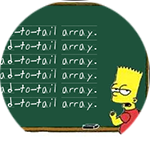Search Results

May 25, 2018, 9:34 AM
Identification of several types of small noncoding RNAs including known microRNAs that are differentially expressed in FSHD2 muscle cells compared to control.

Dec 19, 2014, 12:04 PM
Just in case FSH muscular dystrophy (FSHD) wasn’t confusing enough, now there’s a lot of talk about FSHD2. Let’s take some time to make sure we’re all on the same page and understand what’s going on.

Aug 31, 2014, 2:57 PM
Drs. Filippova and Miller present their final results from the study.

Jan 31, 2014, 4:36 PM
Jong-Won Lim progress update.

Nov 11, 2012, 1:03 PM
Friends of FSH Research has helped fund another ground breaking project that has shed new light on the mechanism of muscle damage in Facioscapulohumeral Muscular Dystrophy, and suggests new targets for treatment.

Jun 2, 2009, 1:58 PM
Facioscapulohumeral muscular dystrophy (FSHD), caused by partial deletion of the D4Z4 macrosatellite repeat on chromosome 4q, has a complex genetic and epigenetic etiology. To develop FSHD, D4Z4 contraction needs to occur on a specific genetic background. Only contractions associated with the 4qA161 haplotype cause FSHD.





Connect with us on social media